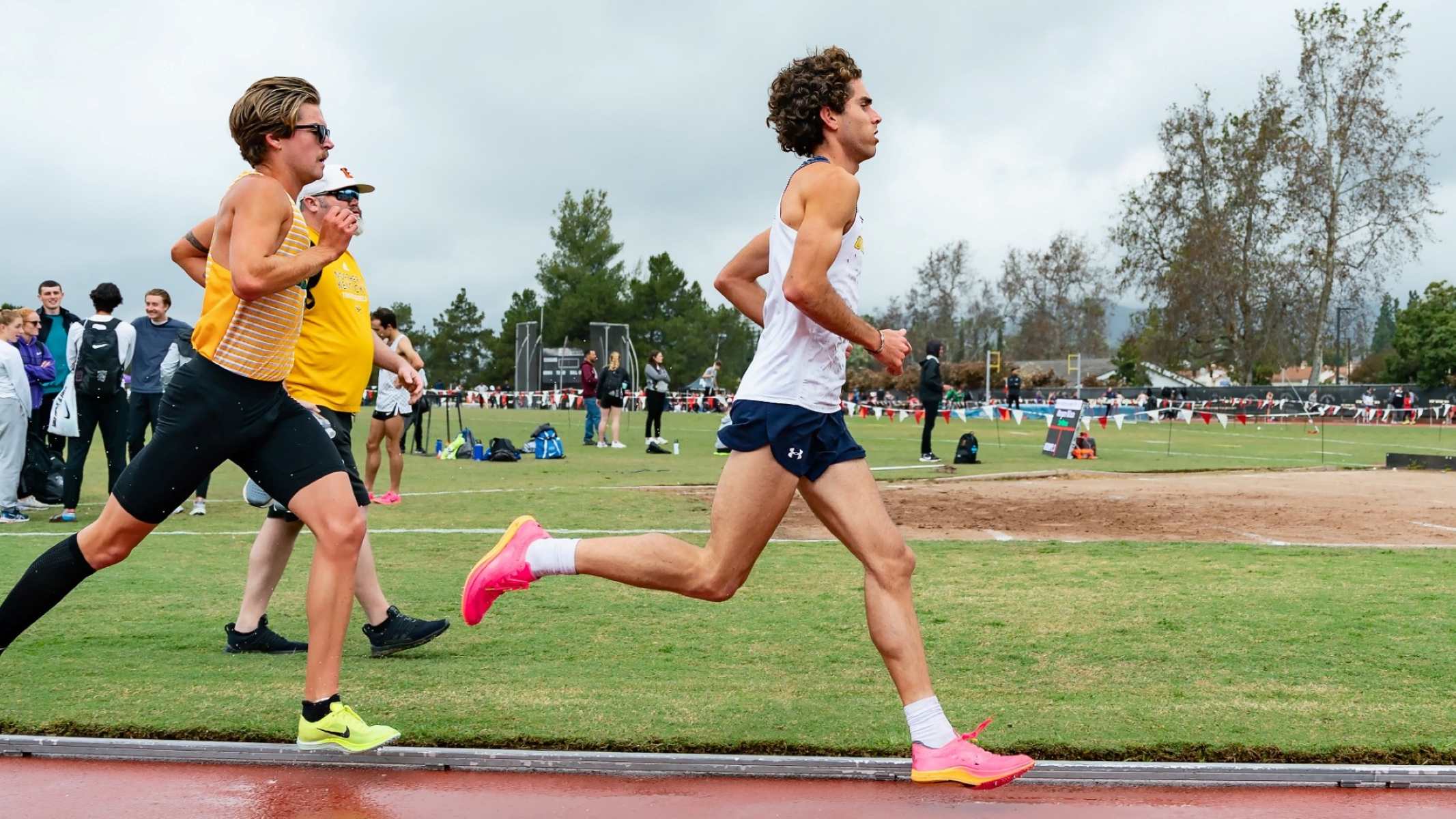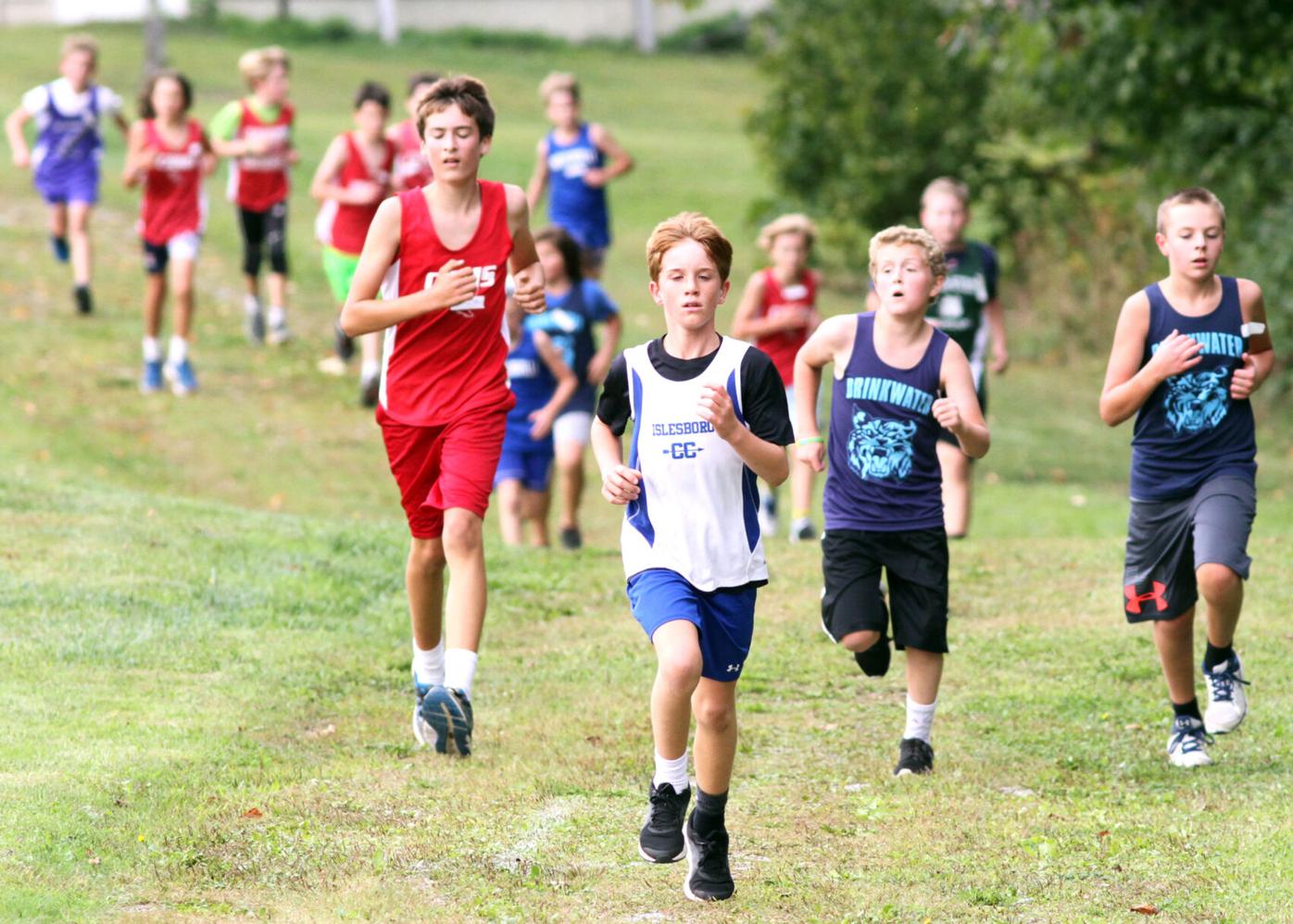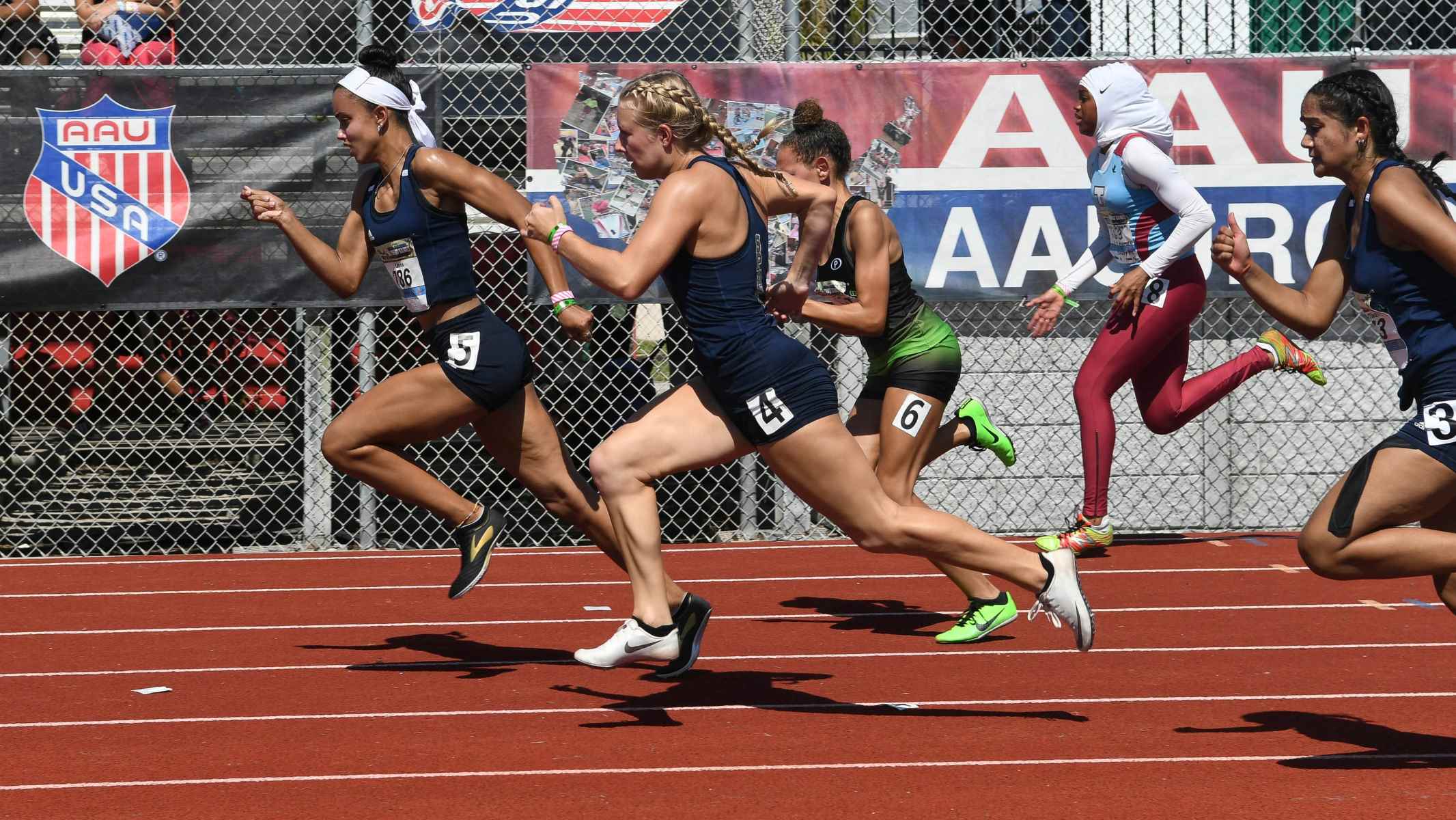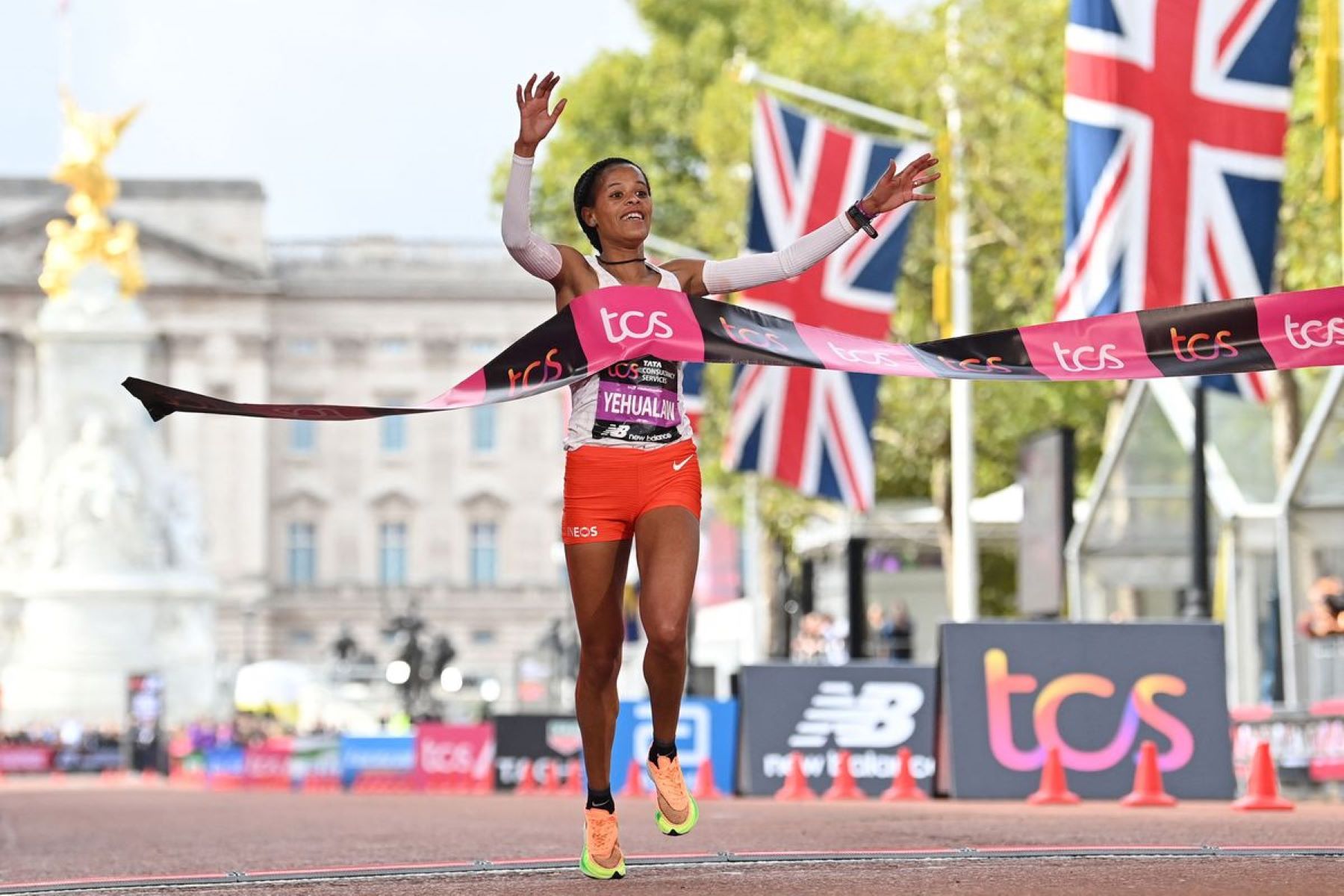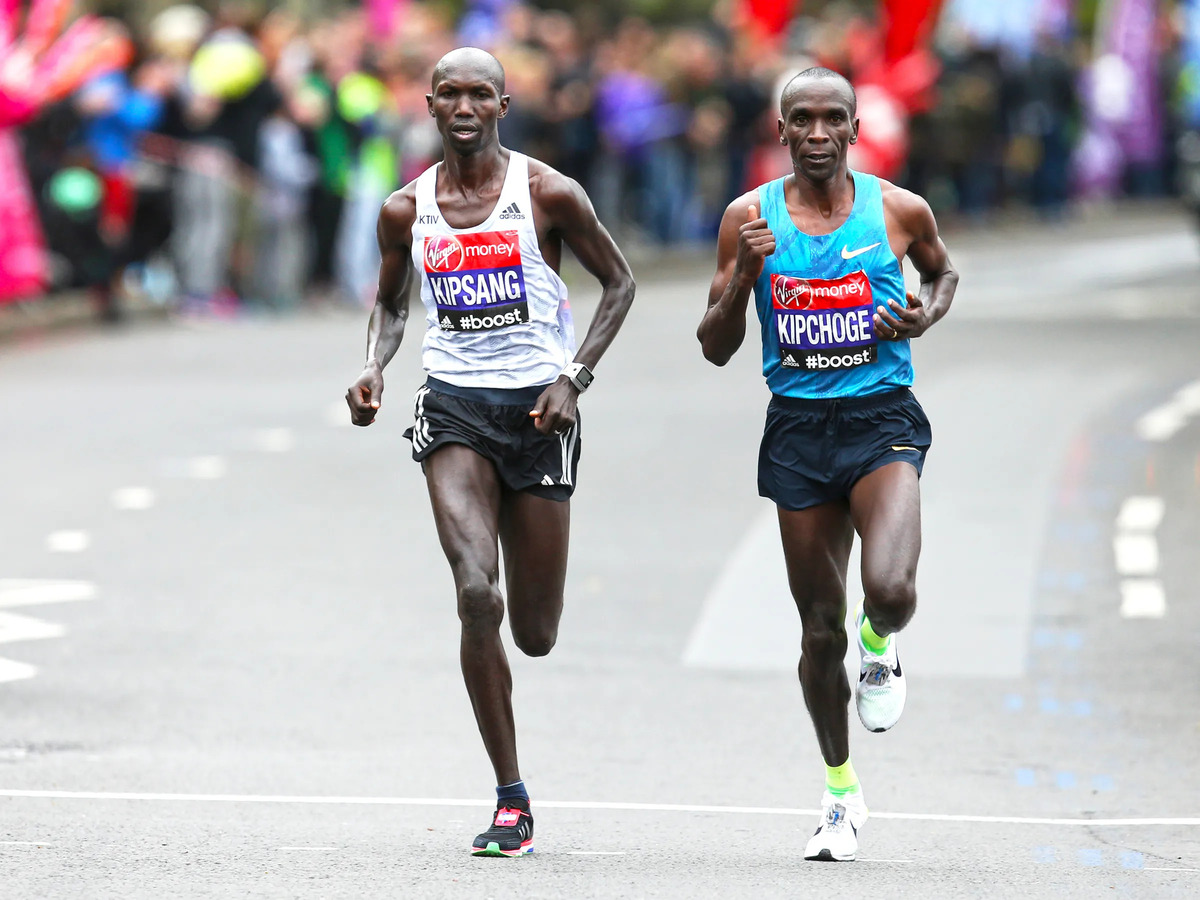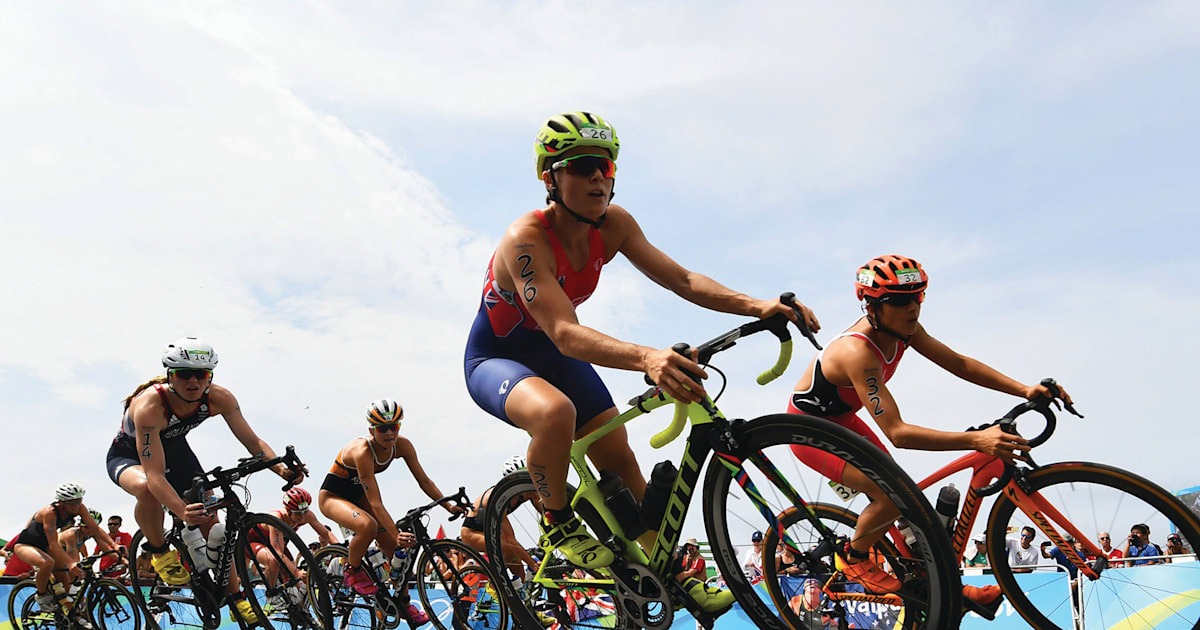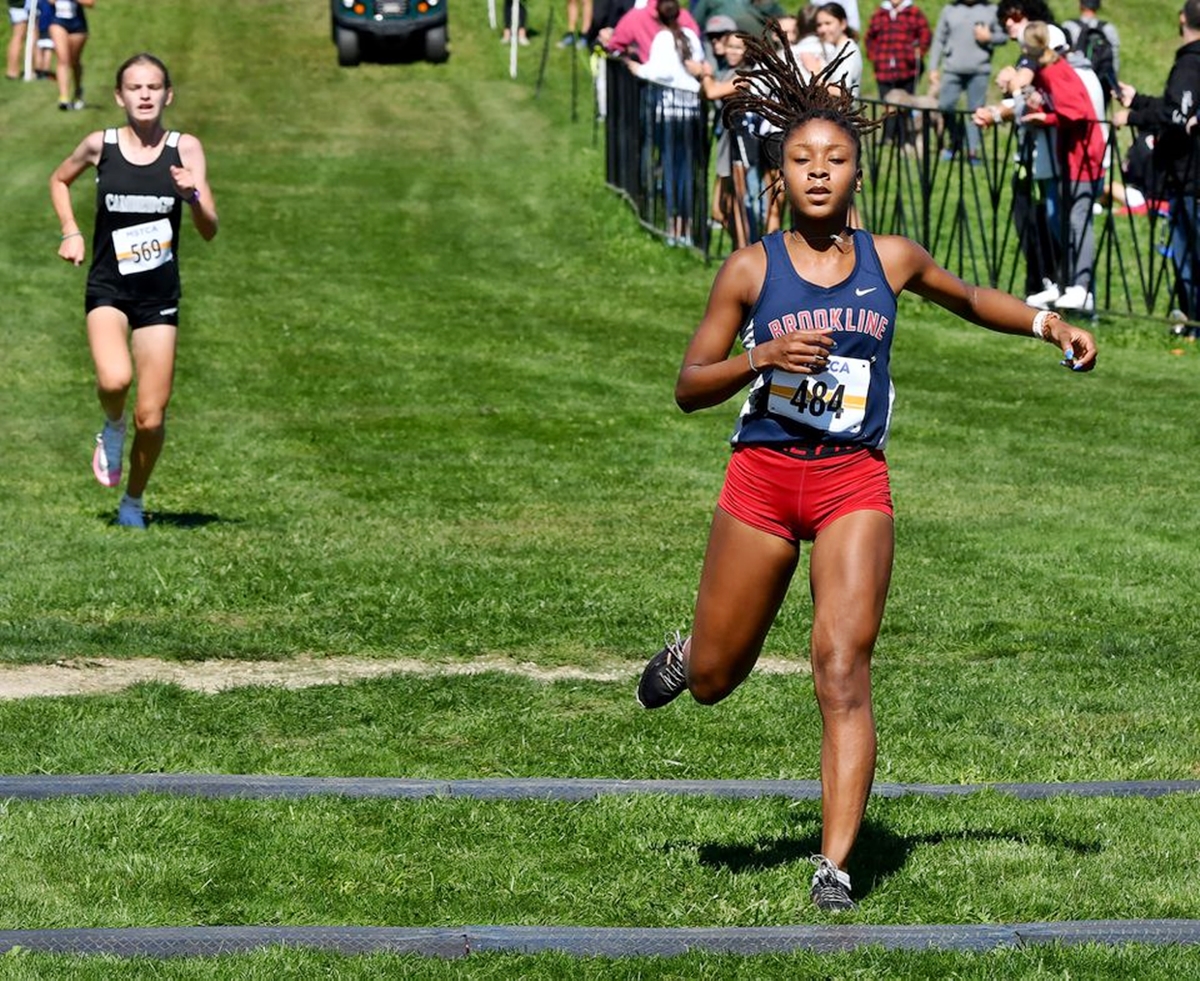

Featured
How Mindset Affects Athletic Performance
Modified: August 19, 2023
Discover how your mindset can have a profound impact on your athletic performance. Unlock your potential with the featured article on mindset and sports performance.
Introduction
Athletic performance is not only determined by physical prowess but also heavily influenced by mental factors. While physical training and skill development play a crucial role in achieving success in sports, the mindset of an athlete can make a significant difference in their performance outcome.
Mindset refers to the underlying beliefs, attitudes, and thought patterns that shape an individual’s approach to challenges, setbacks, and personal growth. It can be classified into two main categories: fixed mindset and growth mindset.
In this article, we will explore how mindset affects athletic performance and delve into the differences between a fixed and growth mindset. We will also discuss the impact of mindset on training, motivation, resilience, and mental toughness. Finally, we will explore strategies that athletes can use to develop a growth mindset and unlock their full potential.
Athletes with a fixed mindset tend to believe that their abilities and talents are fixed traits. They may believe that they have a predetermined level of skills and that failure indicates a lack of inherent ability. As a result, these individuals often shy away from challenges, fearing that failures will undermine their self-esteem and confirm their lack of ability.
On the other hand, athletes with a growth mindset believe that their abilities can be developed through hard work, dedication, and perseverance. They view failures as opportunities for learning and growth, embracing challenges as a means to improve their skills. This mindset allows athletes to push their limits, stay motivated, and bounce back from setbacks.
The mindset an athlete adopts can have a profound impact on their training and skill development. Those with a fixed mindset may be resistant to trying new techniques or pushing themselves outside their comfort zone, as failure can be seen as a reflection of their abilities. Conversely, athletes with a growth mindset are more likely to embrace challenges, actively seek feedback, and continuously work on improving their skills.
Mindset also plays a crucial role in an athlete’s motivation levels. Those with a fixed mindset may rely heavily on external validation and success to feel motivated. They may become demotivated in the face of failures, as their self-worth is tied to their performance outcomes. In contrast, athletes with a growth mindset derive motivation from the process of improvement itself. They are driven by intrinsic factors such as the love of the sport, personal growth, and the desire to constantly challenge themselves.
Another aspect influenced by mindset is an athlete’s resilience and mental toughness. Athletes with a growth mindset are more likely to bounce back from setbacks and persevere through difficult situations. They see failures as temporary setbacks and use them as opportunities to learn and grow. In contrast, those with a fixed mindset may be more inclined to give up or become disheartened when faced with obstacles.
Developing a growth mindset is essential for athletes who want to optimize their performance. Fortunately, mindset is not fixed and can be cultivated through intentional efforts. Strategies such as embracing challenges, seeking feedback, setting realistic goals, practicing mindfulness, and reframing failures as learning opportunities can help athletes develop a growth mindset and unlock their full potential.
In the following sections, we will delve deeper into the differences between a fixed and growth mindset, explore the impact of mindset on various aspects of athletic performance, and provide practical strategies to develop a growth mindset in sports.
What is Mindset?
Mindset can be defined as the set of beliefs and attitudes that shape an individual’s thoughts, actions, and behaviors. It is the lens through which we perceive ourselves, our abilities, and the world around us. In the context of athletic performance, mindset plays a crucial role in determining an athlete’s approach to challenges, setbacks, and personal growth.
Mindset can be broadly categorized into two main types: fixed mindset and growth mindset.
A fixed mindset is characterized by the belief that abilities and talents are fixed traits. Individuals with a fixed mindset tend to believe that their skills are predetermined, and failure indicates a lack of inherent ability. They often avoid challenges and shy away from taking risks, fearing that failures will confirm their perceived limitations.
On the other hand, a growth mindset is the belief that abilities can be developed through effort, dedication, and practice. Individuals with a growth mindset embrace challenges as opportunities for learning and growth. They view failures as stepping stones to success and believe that with hard work and perseverance, they can improve their skills and achieve their goals.
Mindset is not a binary concept – individuals may have elements of both fixed and growth mindsets in different areas of their lives. It is also important to note that mindset is not fixed and can be changed or developed over time with intentional effort.
The concept of mindset was popularized by psychologist Carol S. Dweck, who conducted extensive research on the topic. Through her research, Dweck demonstrated how mindset influences various aspects of our lives, including academic achievement, career success, and personal relationships.
In the realm of athletics, mindset plays a critical role in an athlete’s performance and overall success. It affects how athletes approach challenges, handle setbacks, and strive for continuous improvement. By understanding and cultivating a growth mindset, athletes can tap into their full potential and overcome obstacles that may arise in their athletic journey.
Throughout this article, we will explore the impact of mindset on athletic performance, delve into the differences between fixed and growth mindsets, and provide practical strategies for athletes to develop a growth mindset. By embodying a growth mindset, athletes can enhance their training, motivation, resilience, and mental toughness, ultimately maximizing their performance and achieving their goals.
The Role of Mindset in Athletic Performance
When it comes to athletic performance, mindset plays a pivotal role in determining an athlete’s success and potential. While physical abilities and skills are undoubtedly important factors, the mindset an athlete adopts can significantly impact their overall performance. Here, we will delve into the various ways mindset influences athletic performance.
First and foremost, mindset shapes an athlete’s approach to challenges and setbacks. Athletes with a fixed mindset may view challenges as threats to their self-esteem and abilities. As a result, they may be more inclined to avoid or give up when faced with tough situations. Conversely, athletes with a growth mindset see challenges as opportunities for growth and improvement. They embrace difficulties, stay determined, and persevere through obstacles, which ultimately contributes to their long-term success.
Mindset also affects an athlete’s attitude towards failure. Athletes with a fixed mindset may view failure as a personal reflection of their abilities, leading to feelings of inadequacy and self-doubt. This mindset can hinder their ability to bounce back and learn from their mistakes. Conversely, athletes with a growth mindset see failure as a stepping stone on the path to success. They understand that failure is a natural part of the learning process and use setbacks as valuable opportunities for growth and improvement.
Furthermore, mindset plays a crucial role in an athlete’s ability to handle pressure and perform under stressful circumstances. Athletes with a fixed mindset may crumble under pressure, fearing that they will not live up to expectations or meet their own high standards. This mindset can lead to performance anxiety and hinder their ability to perform at their best. On the other hand, athletes with a growth mindset see pressure as a challenge to rise above and excel. They thrive under pressure, harnessing it as a source of motivation to perform at their peak.
Mindset also impacts an athlete’s motivation levels. Athletes with a fixed mindset may primarily rely on external validation and success to feel motivated. They may lose motivation when faced with failures or setbacks, as their self-worth is tied to their performance outcomes. In contrast, athletes with a growth mindset are driven by intrinsic factors and love for the sport. They derive motivation from the process of improvement itself and are not solely dependent on external results. This intrinsic motivation keeps them engaged, dedicated, and consistently striving to reach new heights.
In addition, mindset influences an athlete’s ability to learn and develop new skills. Athletes with a fixed mindset may be resistant to trying new techniques or pushing themselves outside their comfort zones. They may fear failure or believe that their current skill level is fixed. Conversely, athletes with a growth mindset eagerly seek new challenges and actively work on improving their skills. They understand that with effort, practice, and perseverance, they can continuously enhance their abilities and achieve greater success.
Overall, the role of mindset in athletic performance is undeniable. A growth mindset can empower athletes to embrace challenges, learn from failures, thrive under pressure, stay motivated, and continuously develop their skills. By developing a growth mindset, athletes can maximize their potential, overcome obstacles, and ultimately achieve their goals in the world of sports.
Fixed Mindset vs. Growth Mindset
Fixed mindset and growth mindset are two contrasting attitudes that individuals can adopt when it comes to their abilities, talents, and personal development. Understanding the differences between these mindsets is essential in recognizing how they impact an athlete’s approach to challenges, learning, and overall performance.
A fixed mindset is characterized by the belief that abilities and talents are fixed traits that cannot be significantly changed or developed. Individuals with a fixed mindset tend to associate failure with a lack of inherent ability and tend to avoid challenges to protect their self-esteem. They may view success as a result of their natural talent rather than hard work or effort.
In contrast, a growth mindset is the belief that abilities and talents can be cultivated and developed through effort, practice, and persistence. Individuals with a growth mindset see failure as a stepping stone to success and embrace challenges as opportunities for growth and learning. They understand that qualities such as skill, intelligence, and potential are not fixed, but can be developed through dedication and hard work.
When it comes to athletic performance, athletes with a fixed mindset may be resistant to taking on new challenges or pushing themselves outside their comfort zones. They fear failure and may believe that their abilities are predetermined, leading to a lack of motivation to improve. This mindset can hinder an athlete’s progress and limit their potential.
On the other hand, athletes with a growth mindset thrive on challenges and eagerly seek new opportunities for improvement. They see setbacks as opportunities to learn and grow, and their motivation comes from the process of getting better rather than solely focusing on the end result. This mindset empowers athletes to continually develop their skills, overcome obstacles, and achieve their goals.
The impact of mindset extends beyond athletic performance. In other areas of life, individuals with a fixed mindset may be more likely to avoid challenges that may risk their self-perception of being naturally talented or intelligent. They may interpret failure or setbacks as a sign of incompetence, leading to a fear of taking risks or pursuing new opportunities.
On the other hand, individuals with a growth mindset embrace challenges, view failure as a natural part of the learning process, and understand that setbacks are temporary and can be overcome with effort and perseverance. This mindset fosters a desire for personal growth, continuous learning, and resilience in the face of obstacles.
It is important to note that mindset is not a fixed trait and can be developed and cultivated over time. Recognizing and understanding the impact of mindset on athletic performance is the first step in cultivating a growth mindset. By embracing challenges, reframing failures as learning opportunities, seeking feedback, and believing in the power of effort and dedication, athletes can shift their mindset from fixed to growth and unlock their full potential.
In the following sections, we will explore how mindset influences training and skill development, motivation, resilience, and mental toughness in athletics, and provide strategies for athletes to develop a growth mindset.
Impact of Mindset on Training and Skill Development
Mindset plays a crucial role in an athlete’s training and skill development. How an athlete approaches their training sessions, perceives their abilities, and embraces challenges can have a significant impact on their overall progress and performance.
Athletes with a fixed mindset may have a limited belief in their ability to improve and develop new skills. They may approach training sessions with a fear of failure and may be resistant to trying new techniques or pushing themselves outside their comfort zones. As a result, their progress may be hindered, and they may struggle to achieve their full potential.
In contrast, athletes with a growth mindset view training as an opportunity for growth and improvement. They embrace challenges, seek feedback, and actively work on developing their skills. These athletes understand that through effort, perseverance, and a belief in their ability to learn and adapt, they can continually enhance their performance.
The mindset an athlete adopts also influences their perseverance and dedication to their training regime. Athletes with a fixed mindset may be more likely to give up when faced with setbacks or difficulties. They may interpret challenges as a reflection of their abilities, leading to a lack of motivation to continue their training. On the other hand, athletes with a growth mindset are more resilient and determined to overcome obstacles. They see setbacks as temporary and use them as fuel for improvement, displaying greater persistence and commitment to their training regimen.
Mindset can also impact an athlete’s approach to practice and the way they handle mistakes. Athletes with a fixed mindset may view mistakes as failures and become discouraged by them. They may avoid making mistakes altogether, which can limit their learning and growth. In contrast, athletes with a growth mindset see mistakes as opportunities for learning. They embrace challenges, make mistakes, and use them as valuable feedback to refine their skills and make progress.
Furthermore, mindset affects an athlete’s ability to receive and utilize feedback effectively. Athletes with a fixed mindset may perceive feedback as criticism and may be resistant to accepting constructive advice. They may feel threatened by feedback, seeing it as a judgment on their abilities. Athletes with a growth mindset, however, see feedback as an opportunity for growth and improvement. They actively seek feedback and use it to make adjustments and refine their skills. This openness to feedback accelerates their progress and development.
Developing a growth mindset in training and skill development is essential for athletes who want to unlock their full potential. By embracing challenges, pushing past comfort zones, persisting through setbacks, and actively seeking feedback, athletes can cultivate a mindset that is conducive to continuous improvement. This growth mindset not only optimizes their training but also sets the stage for higher levels of performance in competitive settings.
In the next sections, we will explore how mindset influences motivation in athletics and the role of mindset in developing resilience and mental toughness.
Mindset and Motivation in Athletics
Mindset and motivation are closely intertwined in the world of athletics. An athlete’s mindset significantly impacts their motivation levels, which in turn can influence their dedication, perseverance, and overall performance.
Athletes with a fixed mindset may rely heavily on external validation and success for their motivation. They may feel the need to constantly prove their abilities and seek approval from others. This dependence on external factors can make their motivation fragile, as it can be easily undermined by setbacks or failures. When faced with challenges or obstacles, athletes with a fixed mindset may become demotivated, as their self-worth is tied to their performance outcomes.
On the other hand, athletes with a growth mindset derive their motivation from within. They are driven by intrinsic factors such as the love of the sport, personal growth, and the desire to constantly challenge themselves. Their motivation is not solely dependent on external validation or results but rather on the process of improvement itself. As a result, athletes with a growth mindset tend to be more resilient and persistent in the face of difficulties, as their motivation comes from a deeper sense of purpose.
Mindset also plays a role in an athlete’s goal-setting process. Athletes with a fixed mindset may set performance goals that are solely focused on outcomes, such as winning a race or achieving a specific score. While having outcome-based goals can be motivating, athletes with a growth mindset understand the importance of setting process-oriented goals. These goals focus on the specific actions and efforts an athlete needs to take to improve, rather than being solely focused on external results. Process-oriented goals not only keep athletes motivated but also provide a clear roadmap for continuous growth and development.
Furthermore, mindset affects an athlete’s resilience in the face of setbacks. Athletes with a fixed mindset may become disheartened and discouraged by failures or setbacks, as they perceive them as a reflection of their abilities. This mindset can lead to a decrease in motivation and a lack of resilience. Conversely, athletes with a growth mindset view failures as part of the learning process. They see setbacks as temporary and use them as opportunities to learn, adapt, and ultimately improve. This resilient mindset enables athletes to bounce back from setbacks quickly, ensuring that their motivation remains intact.
Developing a growth mindset in athletics is crucial for optimizing motivation. By cultivating a mindset focused on intrinsic motivation, embracing challenges, setting process-oriented goals, and reframing failures as learning opportunities, athletes can tap into a source of sustainable and resilient motivation. This mindset not only enhances their enjoyment of the sport but also fuels their commitment, dedication, and drive to consistently perform at their best.
In the following section, we will explore the influence of mindset on resilience and mental toughness in athletics and discuss strategies athletes can employ to develop a growth mindset.
The Influence of Mindset on Resilience and Mental Toughness
Mindset plays a significant role in an athlete’s ability to develop resilience and mental toughness. Resilience refers to the ability to bounce back from setbacks, adapt to challenges, and remain persistent in the face of adversity. Mental toughness, on the other hand, involves the ability to maintain focus, perform under pressure, and stay motivated in challenging circumstances.
Athletes with a fixed mindset may struggle to develop resilience and mental toughness. They may interpret setbacks or failures as a reflection of their abilities, leading to feelings of discouragement and self-doubt. This mindset can hinder their ability to bounce back from setbacks and adapt to new challenges. Athletes with a fixed mindset may also have difficulty in maintaining their motivation when faced with obstacles, as their confidence and self-belief may be shaken by these setbacks.
In contrast, athletes with a growth mindset approach setbacks as opportunities for growth and learning. They view failures as temporary and use them as stepping stones to success. This mindset allows athletes to bounce back quickly from setbacks and develop resilience. They see challenges as a chance to push their limits, refine their skills, and constantly improve. This resilient mindset helps athletes persevere through difficult circumstances and maintain their motivation and focus, even in the face of challenges and pressure.
Mental toughness is also influenced by mindset. Athletes with a fixed mindset may crumble under pressure, fearing that they will not live up to expectations or meet their own high standards. This mindset can make it challenging for athletes to maintain their focus and perform at their best when it matters the most. In contrast, athletes with a growth mindset see pressure as an opportunity to rise above and excel. They embrace pressure as a challenge, harnessing it as a source of motivation and enhanced performance. This mental toughness allows athletes to stay calm, focused, and perform at their peak even in high-stress situations.
Developing a growth mindset is key to enhancing resilience and mental toughness in athletics. By embracing challenges, reframing failures as learning opportunities, and maintaining a belief in their ability to improve, athletes can cultivate a mindset that thrives in the face of adversity. Adopting a growth mindset allows athletes to develop the mental fortitude needed to overcome obstacles, bounce back from setbacks, and maintain their motivation, focus, and performance under pressure.
In the next section, we will explore strategies that can be employed to develop a growth mindset in sports.
Strategies to Develop a Growth Mindset in Sports
Developing a growth mindset in sports is crucial for athletes who want to unlock their full potential and optimize their performance. Here are some strategies that athletes can employ to cultivate a growth mindset:
- Embrace challenges: Seek out new challenges that push you outside your comfort zone. Embrace the opportunity to learn and grow, even if it means facing potential failures or setbacks. Embracing challenges helps foster a belief in your ability to improve and develop.
- Reframe failures as learning opportunities: Instead of viewing failures as a reflection of your abilities, see them as opportunities for growth and learning. Analyze what went wrong, identify areas for improvement, and make adjustments. Use failures as stepping stones to success.
- Set process-oriented goals: Instead of focusing solely on the outcome, set goals that are focused on the process and specific actions you need to take to improve. This helps create a sense of control and progress, and allows you to track your growth and development.
- Cultivate a positive mindset: Foster a positive inner dialogue and practice positive self-talk. Challenge negative thoughts or self-doubt and replace them with affirming and empowering beliefs. Surround yourself with positive and supportive individuals who uplift and inspire you.
- Seek and embrace feedback: Actively seek feedback from coaches, teammates, and mentors. Embrace feedback as an opportunity for growth and improvement, rather than taking it personally. Use feedback to make adjustments and refine your skills.
- Celebrate the process: Focus on the progress you make rather than solely fixating on the end result. Recognize and celebrate your efforts, improvements, and achievements along the way. This helps reinforce a growth mindset by highlighting the value of continuous improvement.
- Cultivate a growth-oriented training routine: Structure your training sessions around deliberate practice and focused effort. Engage in deliberate and purposeful training that challenges you and pushes your boundaries. This allows for continuous growth and improvement.
- Practice resilience: Develop emotional resilience by staying calm under pressure and bouncing back from setbacks quickly. Reframe challenges and obstacles as opportunities to develop your mental toughness. Cultivate a belief in your ability to overcome adversity and persist through difficulties.
- Practice visualization and positive imagery: Use visualization techniques to imagine yourself successfully overcoming challenges and achieving your goals. Visualize the process, the effort, and the journey towards success. This helps reinforce a growth mindset and instills confidence in your abilities.
- Practice gratitude: Focus on the positives and express gratitude for the opportunities and experiences you have in sports. Cultivating a grateful mindset helps shift your focus towards growth and appreciation, enhancing your overall mindset.
By implementing these strategies consistently, athletes can develop a growth mindset that fuels their motivation, resilience, skill development, and overall performance. Embrace the power of mindset and unlock your full potential in the world of sports.
Conclusion
The role of mindset in athletic performance cannot be overstated. A growth mindset, characterized by a belief in the ability to learn, improve, and develop, is essential for athletes who want to maximize their potential and achieve success in sports.
Throughout this article, we explored the differences between fixed and growth mindsets and their impact on various aspects of athletic performance. Athletes with a fixed mindset tend to shy away from challenges, fear failure, and rely on external validation for their motivation. On the other hand, athletes with a growth mindset embrace challenges, view failures as opportunities for growth, and find motivation from within.
We also discussed how mindset influences training and skill development. Athletes with a growth mindset actively seek new challenges, embrace feedback, and persist through setbacks, leading to continuous improvement. In contrast, those with a fixed mindset may limit their growth potential by avoiding challenges and externalizing their failures.
Mindset also plays a significant role in motivation, resilience, and mental toughness. Athletes with a growth mindset are driven by intrinsic factors and are more likely to maintain their motivation and bounce back from setbacks. They see pressure as an opportunity to excel, display resilience in the face of difficulties, and maintain their focus and performance under challenging circumstances.
To develop a growth mindset, athletes can implement strategies such as embracing challenges, reframing failures as learning opportunities, setting process-oriented goals, seeking feedback, and cultivating a positive mindset. By actively adopting a growth mindset, athletes can optimize their performance and unlock their full potential.
In conclusion, mindset is not a fixed trait but rather a malleable quality that can be developed and cultivated through intentional efforts. By embracing a growth mindset, athletes can overcome obstacles, continuously improve their skills, stay motivated, and maximize their performance in the dynamic world of sports.

